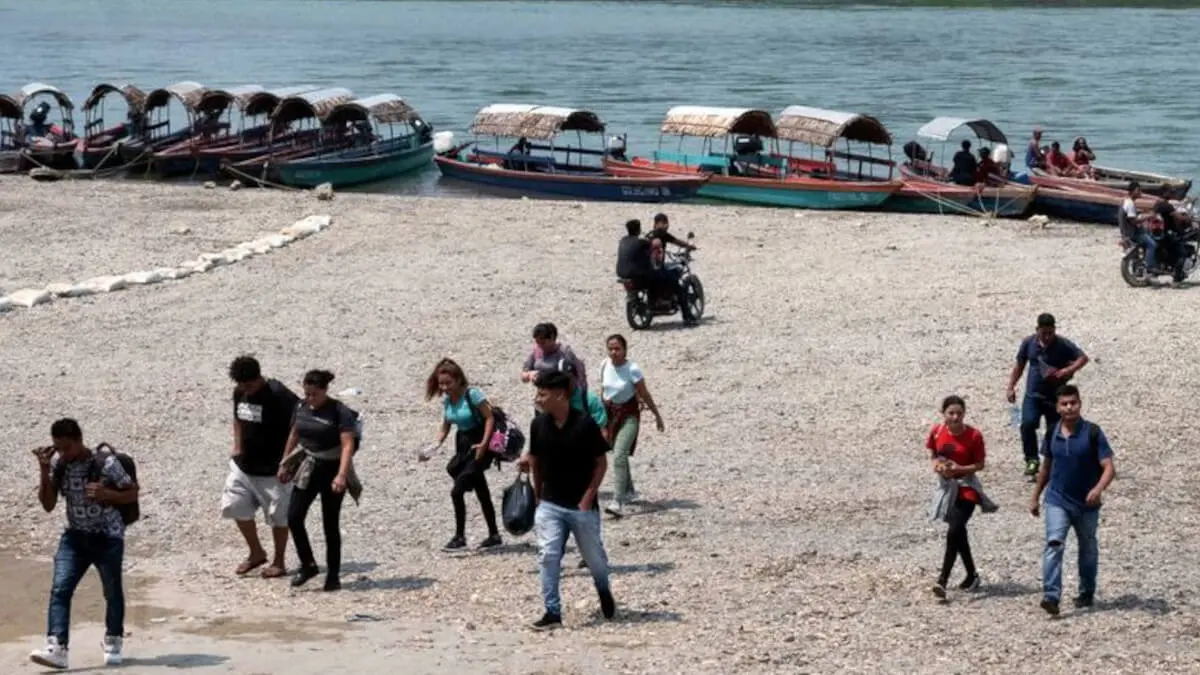Half of irregular migrants arriving in Mexico report leaving their country because of violence

The UN Refugee Agency (UNHCR) on Wednesday published the report Impact of Forced Displacement on Human Mobility, a monitoring tool to identify protection needs of the population in mobility in Mexico, inform how responses are planned and support initiatives to strengthen protection spaces.
According to the UN agency, the agency and other civil society organisations conducted a total of 6387 interviews in 2023, collecting information from 15,000 people of different nationalities in some 20 cities across the country*.
Just over half of the respondents (51%) cited violence, insecurity and threats as the main reasons for leaving their country of origin. More than half of the women cited violence and direct threats as the main reason for fleeing.
By nationality, 71% of Haitians cited fear of the general situation of violence as a cause for leaving.
In addition, 69% of Hondurans reported having been victims of violence, threats and intimidation. Also, 67% of Colombians, 64% of Ecuadorians and 55% of Nicaraguans and 51% of Venezuelans referred to violence, insecurity and threats as the main causes of departure.
Need for international protection
The agency noted that these percentages reinforce the likelihood that many of the people who enter Mexico irregularly are in need of international protection, and urged the strengthening of asylum systems and fair and efficient procedures.
Moreover, 66% of the people surveyed said that their life, safety or freedom would be at risk if they were returned to their country of origin, of which 54% said they would face direct threats.
The agency stressed that it is necessary to identify when people on the move are in need of international protection, otherwise they would be in violation of the principle of non-refoulement.
On the other hand, 55% of the people surveyed travelled in families, 22% in single-parent families.
In this regard, the agency noted that one third of the people surveyed had specific protection needs as single mothers or caregivers, survivors of abuse, persons with chronic medical conditions, pregnant or breastfeeding women, persons with disabilities and elderly persons.
Risks upon arrival in Mexico
The report details the risks to which people are exposed in arriving in Mexico and in transit through the country.
Upon arrival, one in three families need shelter support and one in ten is at risk of spending the night on the streets. One in three people had no documents issued by Mexican authorities, a situation that exacerbates vulnerability to robbery, extortion and threats or physical intimidation.
Of those surveyed, 63% reported that their country of destination was the United States, and 72% reported having made an appointment to report to the United States using the CBP One application. 26% indicated that their final destination was Mexico.
Between June and December, 139 cases (207 persons) of different nationalities deported to Mexico from the United States were detected.
* Interviews were conducted in Tapachula, Suchiate, Tenosique, Villahermosa (in the south); Ciudad Acuña, Ciudad Juárez, Matamoros, Mexicali, Monterrey, Nogales, Piedras Negras, Reynosa, Saltillo and Tijuana (in the north); and Mexico City, Aguascalientes, Guadalajara, Querétaro, Celaya, León, Irapuato and San Luis Potosí (in the central region).







